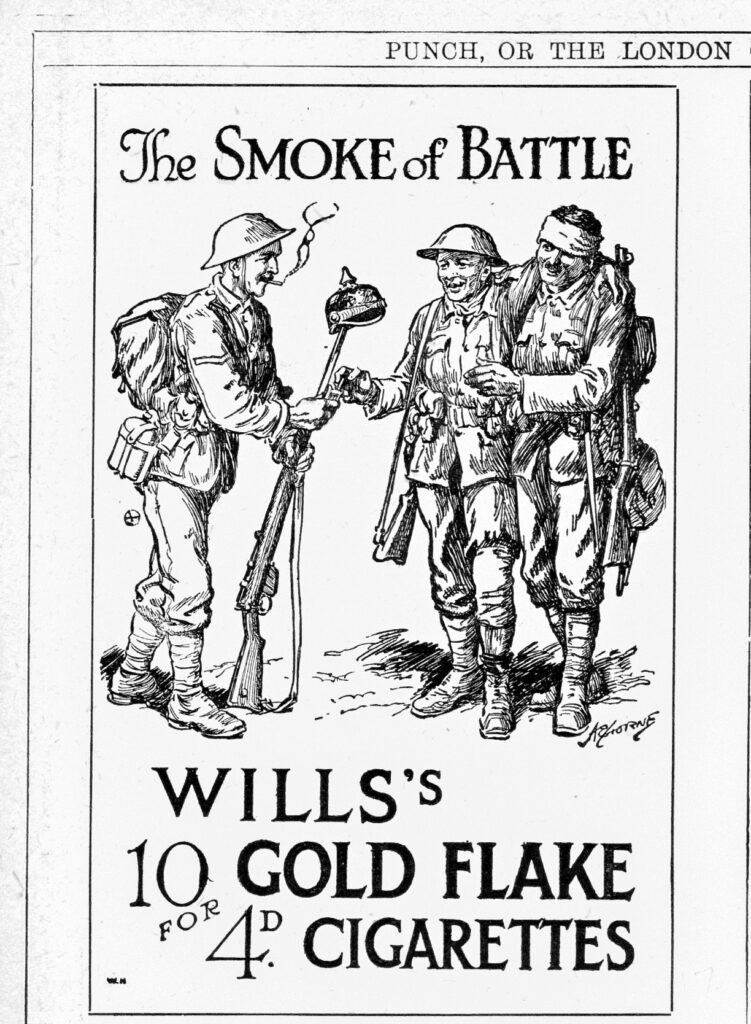
A E Horne’s illustration reflects the reality of war as three Tommies snatch a moment of peace in a shared smoke, cigarettes and warfare inextricably linked, while the copywriter no doubt relished the clever word play.
The guns in the advert are standard Army issue and mere scene setters. The Lance Corporal uses his to display a captured pickelhaube while his wounded comrades have slung theirs.
The Pall Mall Gazette lamented in November 1900 “how little we then thought that the time would ever come when British soldiers on active service would prefer cigarettes to almost any other form of luxury on the march or in hospital” (02.11.1900). Even The Lancet, a respected medical heavyweight reflected on the Army’s south African experience “used with due moderation tobacco is of value second only to food itself” (10.11.1900). Numerous newspaper and magazine articles attested to the vital part tobacco played in maintaining morale. In the words of the Daily Telegraph “It is a sedative to the nerves, a touch of social life and, above all, a reminder of home” (26.10.1916). Cigarettes were a simpler and quicker tobacco fix than the traditional pipe, although either’s match-glow could be fatal in sniper territory.
Bristol based H O & W D Wills’s were one of Britain’s major tobacco manufacturers. Their Wild Woodbine and Gold Flake brands featured in many public schemes set up to send cigarettes to “the boys fighting on all fronts and at sea”. The Newspapers’ Patriotic Tobacco Fund working through local papers offered subscribers a selection of brands to suit all pockets direct from factory to soldier, post free – plus thoughtfully provided pre-addressed postcard allowing grateful recipients to record their appreciation. Wills’s were not alone in exploiting patriotic product placement – a packet of Gold Flake cigarettes “handed to some 900 wounded warriors by Mrs Koch and her daughter” at the wounded soldiers’ sports day reported in the Croydon Times, Wednesday 1 August 1917.
The last word lies with the New York Sun’s anonymous writer of 16 July 1917
“Coffin nails” was what we said
But the war has changed the name.
The cigarette is now first aid
In this hellish, killing Game”.
